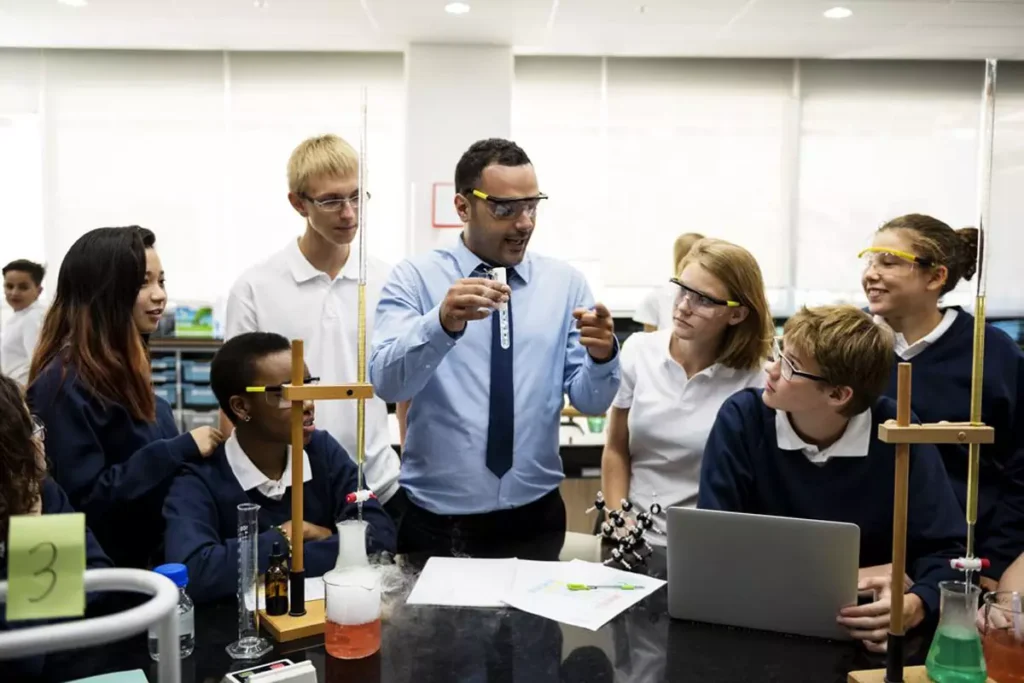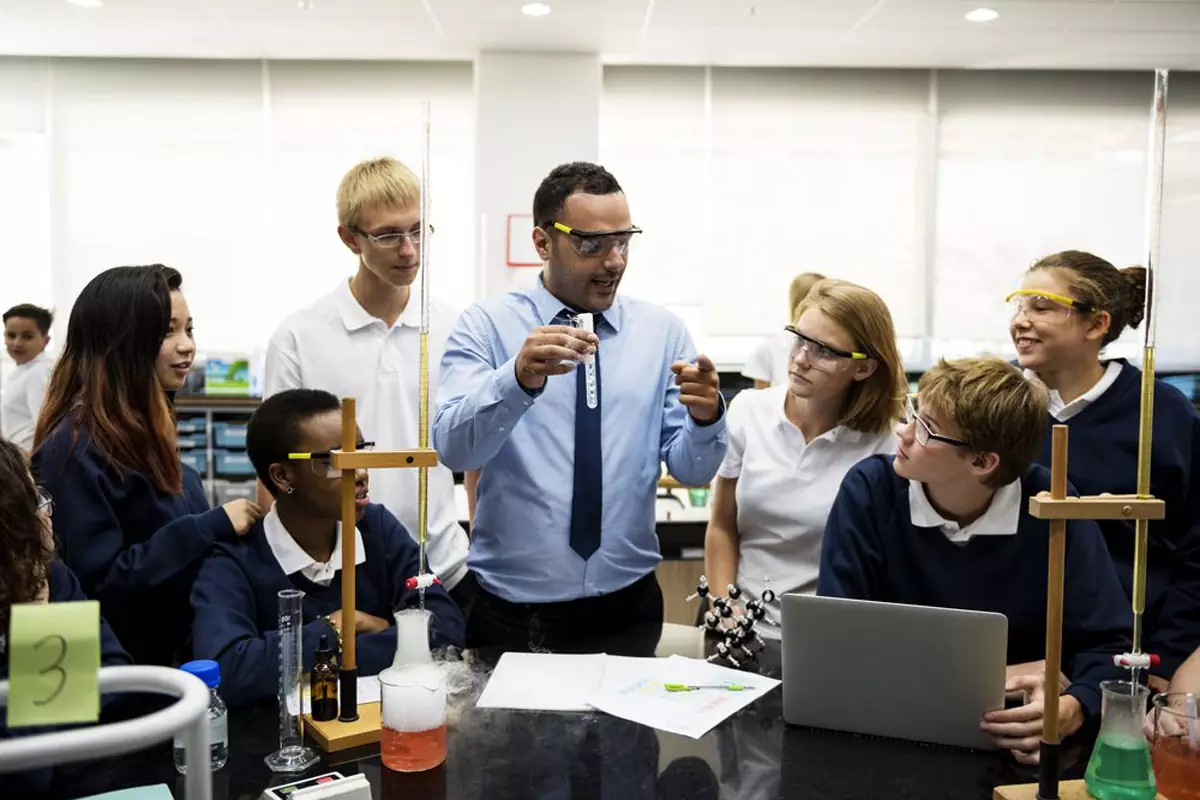The landscape of work is undergoing a transformative shift, driven by technological advancements, globalization, and changing societal dynamics. As educators, parents, and stakeholders, it is imperative to equip students with the skills and mindset needed to thrive in an evolving workforce. This blog post explores the intricacies of the future of work, delving into key skills, educational approaches, and insights to prepare students for success in an ever-changing professional landscape.

1. The Dynamics of the Future Workforce
a. Technological Advancements
- Automation and AI: Explore the impact of automation and artificial intelligence on job roles and the skills required in the workforce.
- Digital Transformation: Understand the importance of digital literacy and the integration of technology into various industries.
b. Globalization and Connectivity
- Remote Work Opportunities: Discuss the rise of remote work and the implications of a globally connected workforce.
- Cross-Cultural Collaboration: Emphasize the significance of cross-cultural collaboration in a globalized job market.
c. Shift in Job Roles and Industries
- Emerging Industries: Identify new and emerging industries that are shaping the future job market.
- Adapting to Change: Discuss the need for adaptability as jobs evolve and new career paths emerge.
2. Key Skills for Future Success
a. Adaptability and Flexibility
- Importance of Adaptability: Highlight the significance of adaptability as a core skill in navigating a rapidly changing work environment.
- Flexibility in Learning: Encourage a flexible mindset in education, preparing students to embrace change and continuous learning.
b. Critical Thinking and Problem-Solving
- Analytical Skills: Discuss the importance of developing analytical skills to assess complex situations.
- Creative Problem-Solving: Explore strategies for fostering creative problem-solving abilities in students.
c. Communication and Collaboration
- Effective Communication: Stress the role of effective communication in a connected and collaborative work environment.
- Team Collaboration: Provide insights into the value of collaborative teamwork and how it enhances productivity and innovation.
d. Digital Literacy and Tech Proficiency
- Tech-Savvy Skills: Discuss the necessity of digital literacy and proficiency in using technology tools relevant to specific industries.
- Coding and Programming: Explore the growing demand for coding and programming skills across various job sectors.
e. Emotional Intelligence
- Interpersonal Skills: Examine the importance of interpersonal skills in building strong professional relationships.
- Self-Awareness: Discuss the role of self-awareness and emotional regulation in the workplace.
3. Educational Approaches for Future Readiness
a. Project-Based Learning
- Real-World Applications: Explore the benefits of project-based learning in providing students with hands-on experiences and real-world applications.
- Collaborative Projects: Emphasize the importance of collaborative projects to simulate teamwork and problem-solving scenarios.
b. Experiential Learning Opportunities
- Internships and Apprenticeships: Discuss the value of internships and apprenticeships in providing students with practical industry experience.
- Industry Partnerships: Explore the benefits of forging partnerships with industries to facilitate experiential learning opportunities.
c. Incorporating Technology in Education
- Digital Learning Platforms: Highlight the role of digital learning platforms in delivering relevant and up-to-date educational content.
- Virtual Reality and Augmented Reality: Discuss the potential of virtual and augmented reality in creating immersive learning experiences.
d. Soft Skills Development Programs
- Communication Workshops: Implement communication workshops to enhance verbal and written communication skills.
- Leadership Training: Introduce leadership training programs to cultivate leadership qualities among students.
4. Navigating Career Paths in the Future
a. Career Exploration Programs
- Early Exposure: Advocate for early exposure to diverse career paths to help students make informed decisions.
- Mentorship Opportunities: Discuss the benefits of mentorship programs in guiding students through their career exploration journey.
b. Lifelong Learning Mindset
- Continuous Education: Emphasize the importance of a mindset focused on continuous learning throughout one’s career.
- Upskilling and Reskilling: Discuss the need for upskilling and reskilling to adapt to changing job requirements.
c. Building a Professional Network
- Networking Skills: Provide guidance on developing effective networking skills for career growth.
- Online Professional Platforms: Explore the role of online professional platforms in building and expanding professional networks.
5. Addressing Challenges in Preparing for the Future of Work
a. Access to Technology and Education
- Challenge: Disparities in access to technology and quality education can hinder future readiness.
- Solution: Advocate for initiatives that bridge the digital divide and provide equal access to educational resources and technology.
b. Resistance to Change in Education Systems
- Challenge: Traditional education systems may resist incorporating new approaches and technology.
- Solution: Advocate for educational reforms and policies that support innovation and adaptability in teaching methods.
c. Mismatch Between Education and Industry Needs
- Challenge: There may be a disconnect between what is taught in educational institutions and the skills demanded by industries.
- Solution: Encourage collaboration between educators and industry professionals to align curriculum with industry needs.
6. Measuring Success in Future Readiness
a. Tracking Academic and Career Achievements
- Academic Performance Metrics: Monitor academic performance to gauge students’ grasp of key skills and subjects.
- Career Advancement: Track the career paths and achievements of alumni as indicators of the effectiveness of future readiness initiatives.
b. Surveying Student and Alumni Feedback
- Student Surveys: Collect feedback from current students on the effectiveness of educational approaches in preparing them for the future of work.
- Alumni Feedback: Seek insights from alumni on how well their education prepared them for their professional journey.
7. Success Stories and Testimonials
a. Individual Career Achievements
- Success Stories: Share inspiring stories of individuals who successfully navigated the evolving workforce due to their future-ready skills.
- Testimonials: Feature testimonials from students, educators, and professionals highlighting the impact of forward-thinking education.
b. Industry Partnerships and Collaborations
- Success Insights: Highlight success stories resulting from effective collaborations between educational institutions and industries.
- Best Practices: Showcase best practices in building successful partnerships that enhance students’ readiness for the future of work.
Conclusion
In conclusion, preparing students for the future of work requires a holistic approach that encompasses skill development, educational innovation, and a mindset focused on adaptability. By understanding the dynamics
